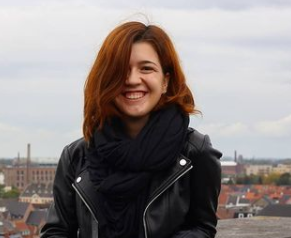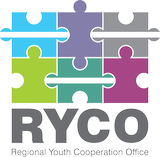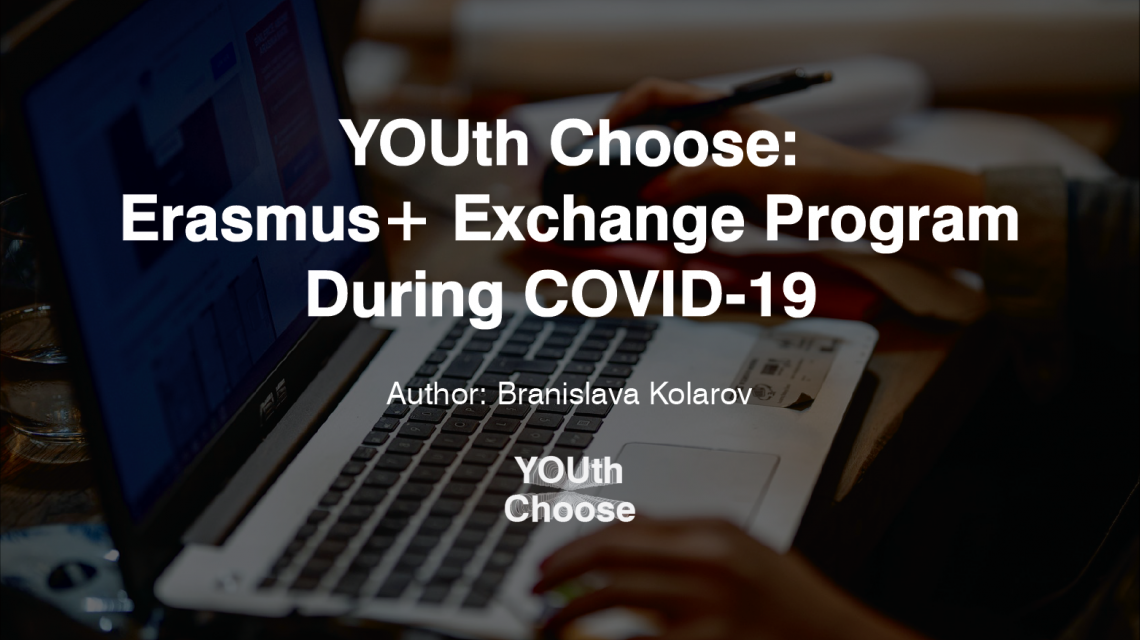Student exchange programs are among the most exciting opportunities you can take part in during your schooling. You get to study abroad for some time, experience foreign culture, meet new people and even learn a new language – the possibilities are countless, and one of the potential options is certainly the Erasmus+ exchange program. In spite of all the inconveniences that this year and the COVID-19 pandemic brought, most of the Erasmus+ grant holders have managed to realize their mobility, even though some additional modifications and restrictions had to be followed.
The Erasmus+ exchange program, the EU’s program supporting education, training, youth and sport in Europe, as it is explained at the European Commission’s official website, has been one of the options offering students the possibility of studying abroad since 1987. According to a 2014 publication from the European Commission, the program has given the opportunity of studying across and outside the European borders to 3.3 million students within the European community, and more than 4000 university institutions from 31 places are participating in the project, one of which is University of Novi Sad in Serbia.
Currently, there are approximately 70 students of the University of Novi Sad taking part in the Erasmus+ exchange during the winter semester 2020/21, in the midst of the COVID-19 pandemic, and coordinators of the program at the University of Novi Sad state that the pandemic has certainly affected both their work and students’ experiences, causing anxiety and the necessity to adapt to different modifications:
“The COVID-19 pandemic has made an impact on all parties involved in this program, including students who had to adapt to the newly changed conditions. As the pandemic can be slightly unpredictable, students are faced with frequently changing regulations in the home/host place. This creates additional questions and responsibilities in the preparation and realization of student mobility (travel, issuing of visas, etc.), causing stress for students to be timely prepared and start their mobilities in a timely manner. In some cases, we received requests from students to postpone their mobilities – which may be caused by travel cancellations, possible infection with COVID, some restrictions of crossing the borders – or even postponing studies, i.e. courses for the next semester at the host university,” International Relation Office states.
Irena Čučković, journalism student who is implementing her mobility program at the University of Zadar, says the current restrictions in Croatia are that all bars and restaurants have been closed since the end of November, and at the same time all classes at her university have been switched to online platforms.
 “It mostly affects social life, I would say. After the lockdown in March and April in Serbia, I already got used to having online classes, so I don’t find them unusual now, but hanging out with people at cafés and bars is what I really miss. The only “difficulty” is the uncertainty of how the following months will look like – will the restrictions become more strict, will I have to take another PCR test before coming back to Serbia etc.,” wonders Irena.
“It mostly affects social life, I would say. After the lockdown in March and April in Serbia, I already got used to having online classes, so I don’t find them unusual now, but hanging out with people at cafés and bars is what I really miss. The only “difficulty” is the uncertainty of how the following months will look like – will the restrictions become more strict, will I have to take another PCR test before coming back to Serbia etc.,” wonders Irena.
Irena adds that she is satisfied with her Erasmus+ experience so far, and besides missing the social aspect of her exchange, she doesn’t regret deciding to take part in the program.
“Considering the pandemic, it has been quite good. October and the first half of November were a bit more relaxed, so we (Erasmus+ students) managed to socialize more than we do now. But still I’m very happy that I decided to come here. The city is beautiful and even though we don’t really have the usual Erasmus+ events, you can still walk by the sea every day and travel around Croatia,” states Irena.
However, some of the mobility places have stricter restrictions. As we learn from Olga Babić, who is currently on her mobility at the Neuphilologisches Institut in Würzburg, Germany, there is a complete lockdown after 9pm, all the stores except grocery stores are closed, the meetings are limited to 5 people at maximum and the cafés and restaurants are closed as well.
 “I haven’t met any of my fellow students or been in the university building. I originally chose Germany to improve my German skills, but since I haven’t really had a chance to speak the language in more than a few sentences, my skills have actually plummeted. I know a lot of my knowledge depends on me, but it makes it all harder when you don’t use it in your everyday life like you planned to,” adds Olga.
“I haven’t met any of my fellow students or been in the university building. I originally chose Germany to improve my German skills, but since I haven’t really had a chance to speak the language in more than a few sentences, my skills have actually plummeted. I know a lot of my knowledge depends on me, but it makes it all harder when you don’t use it in your everyday life like you planned to,” adds Olga.
Coordinators at the International Relations Office in Novi Sad state that many students expressed their fears and doubts in sending an application to the open call, bearing in mind possible difficulties which may occur. They add that some of the University of Novi Sad grant holders were asked to change the previously approved type of mobility and transition to the Blended mobility – a combination of the physical and virtual one, at some point during their preparations, although most of the students prefer physical mobility:
We had the example of a student who had to come back from mobility because the government of the host university ended physical classes in every university due to the pandemic. The student has continued her mobility from home and her exchange has gained the status of the so-called blended mobility,” the International Relation Office states.
Students’ Erasmus+ experiences vary from place to place depending on the pandemic measures, but it seems that the social aspect of the exchange suffers the most. Iva Gajić, who is currently on her mobility at the Howest University in Belgium, emphasize this statement as well, even though she also states that she is very content with the program:
“It’s a great experience, even in COVID times. I met a lot of good friends and I love the university itself. There is a curfew during night and cafés and restaurants are closed, but apart from that,  everything functions normally. For a couple of weeks we had online classes, but now we are back on campus, so it’s okay. The only impact it has on me is that I would travel and party more,” says Iva.
everything functions normally. For a couple of weeks we had online classes, but now we are back on campus, so it’s okay. The only impact it has on me is that I would travel and party more,” says Iva.
The International Relations Office of the University of Novi Sad is doing its best to provide all the necessary support and information to the outgoing students as well as the incoming, foreign students that are currently on the Erasmus+ exchange program in Novi Sad.
“Incoming students are well-informed by the central IRO upon their arrival, and they have regular communication with the administrative and academic coordinators at the faculty level. During their stay at the University of Novi Sad, students are free to ask for any assistance by IRO coordinators/mentors to attend classes under the best possible conditions,” state the representatives from the office.
As for the outgoing students from the University of Novi Sad, the program continues in line with the regulations in their host university. International Relation Offices at the University of Novi Sad and their partners from other countries are available for every assistance on this matter, so that mobilities can take place under the best possible conditions.
Author: Branislava Kolarov
This story was produced during the three-month Program for Students of Journalism in the Western Balkans within the framework of the advocacy project “A Better Region Starts with Youth” implemented by RYCO with the support of the Federal Republic of Germany. All journalists’ work is their own and the content of any given article does not represent the opinion of RYCO, and RYCO cannot guarantee the validity and the accuracy of the information that these stories contain.



